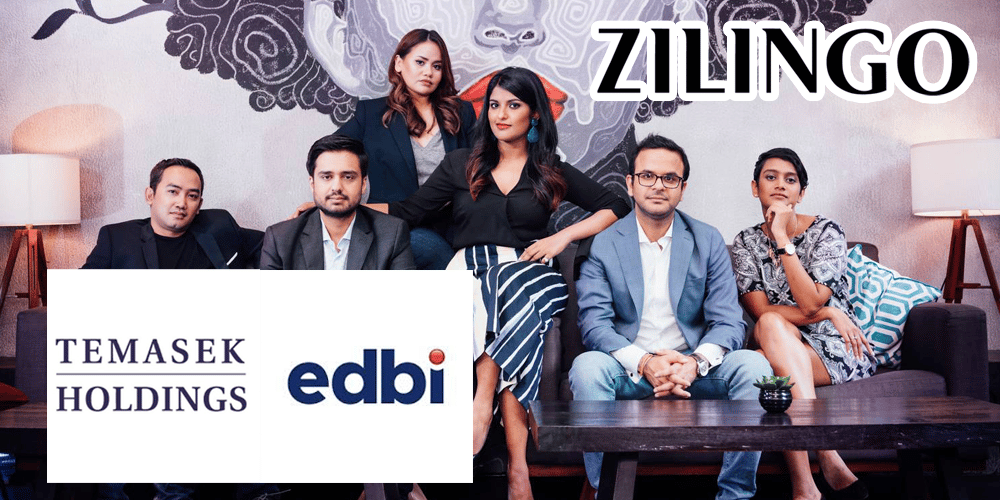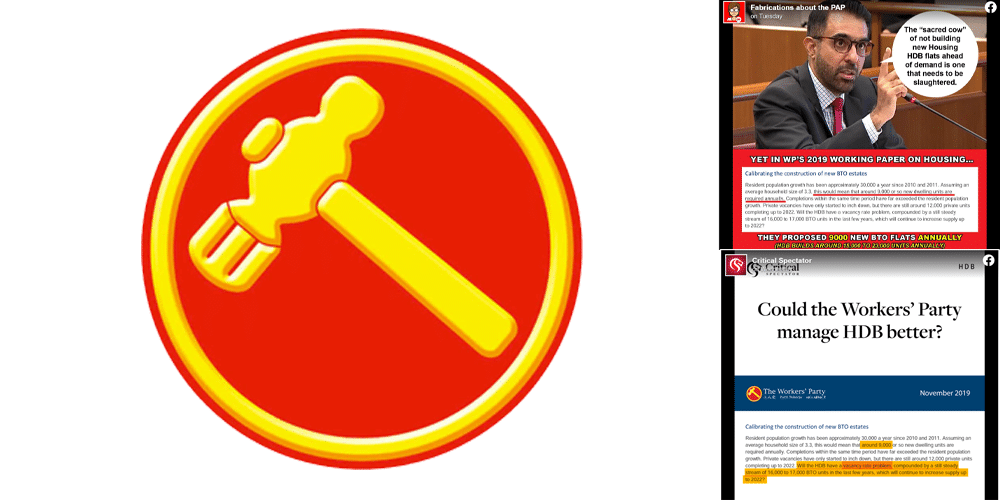At a Forward Singapore dialogue held at Yew Tee Community Club on Saturday (8 Oct), one of the main proposals that came out from it was having an additional two days of paid leave for all Singaporeans to visit the country’s heritage and cultural sites so as to better appreciate the Singapore identity. This report was published by the Straits Times (ST).
The Forward Singapore dialogue is initiated by Singapore’s 4G leaders as an exercise for all Singaporeans to “come together, examine our values and aspirations, build consensus, and so refresh our social compact”. On the government website, it said that through the exercise, “we will examine what we want to see for Singapore’s future, what we should prioritise, and what each of us is willing to contribute, in order to get there”.
According to the ST report, some 20 Forward Singapore dialogue sessions will be held in the heartland to “allow more Singaporeans to contribute their views and ideas”.
During the dialogue session at Yew Tee, some people proposed having two extra days of paid leave for Singaporeans to involve in cultural exploration, as the participants agreed that national unity can be built by having a deeper appreciation for a shared Singapore identity. They said Singaporeans can use the time to familiarise themselves with the national symbols and visit heritage and cultural sites.
DPM Lawrence Wong thanked the participants for sharing their ideas. He said, “We are doing this as a series of conversations all over Singapore in neighbourhoods everywhere as part of this Forward Singapore exercise.”
“In charting this new way forward, we feel it’s important that everyone in Singapore has a say, you contribute to that process,” he added. “You give us ideas, suggestions, and we can chart this future together, co-create that future and shape it together.”
A Reboot Of SG Conversation 2012
When Mr Wong launched the Forward Singapore initiative, he put forward a few questions to spur people’s thought on what the initiative seeks to achieve:
How can we do more to equip and empower our people, whatever their starting point in life, and ensure everyone is able to maximise their potential? How can we as a society better assure Singaporeans and better care for their needs in this volatile and unpredictable world?
With increasing demands on our resources, how do we build an even better home and steward our shared environmental and financial resources, so we can meet the needs of Singaporeans today as well as those yet unborn – our future generations?
And finally, how might we unite our people and foster a greater sense of shared ownership and responsibility, so that we can all pull together as one to take Singapore forward?
What is interesting is that his questions of what the initiative seeks to achieve, seem to resemble the findings of what Singaporean like to see after Singapore held 660 sessions of conversations with 47,000 participants back in 2012 during the SG Conversation.

The SG Conversation was launched in 2012 soon after People’s Action Party (PAP) lost its first Group Representation Constituency (GRC) to Workers’ Party in the General Election 2011. Public sentiments were against the incumbent due to unhappiness over foreign labour and many other issues.
If Forward Singapore’s intention is indeed to find solutions for what Singaporeans had already told the government ten years ago, does it mean that the government has no solutions or idea of how to address those issues? And that this initiative is an attempt to crowdsource ideas that the government with the highest paid civil servants in the world can then use to perform their job?
If the above is untrue, then people will surely wonder why then the government has little or nothing to address those problems since the SG Conversation took place and at the same time, if Forward Singapore would end up in the same manner.
Dialogue sessions organised by People’s Association
ST reported that such dialogue sessions are organised by the People’s Association (PA). For example, the Saturday’s session at Yew Tee was facilitated by grassroots leader Shabirin Ariffin, who is an adjunct lecturer at Nanyang Polytechnic’s School of Business Management. He even brought his 16-year-old daughter there to join in as a participant.
She said that it is important for young people to be present at such dialogues, so they can take greater ownership of their future. She said, “I think for my generation, being part of such dialogues helps us foster a sense of belonging in Singapore, by making our voices and ideas heard.”
Mr Shabirin added, “This platform is actually an opportunity for any Singaporean to share his voice, to stop just complaining and start doing something… This is really the perfect opportunity for Singaporeans to shape where we go as a society, especially since many of us have many good ideas.”
Close to 1,000 Singaporeans are said to have signed up for the Forward Singapore dialogue. It’s not known however, if the majority of the participants will come from grassroots organizations.
There has been criticism of the close relationship between the grassroots organizations which come under the purview of PA and the ruling PAP. For instance, during a Parliamentary debate in 2016, Workers’ Party chairman Sylvia Lim alleged that some quarters of the PA saw its role to include the political advancement of the ruling party. She cited the mobilisation of PA activists to campaign for PAP’s candidates during elections as an example.
Minister Chan Chun Sing, of course, refuted the allegations. Mr Chan, who was then the PA’s deputy chairman, said that the association is an apolitical organisation that “executes the directions for the government of the day as per any statutory board”.
“The People’s Association does not allow any political activity or canvassing on our premises or in our activities and we certainly do not mobilise anyone for any political party,” he said. Participants of the PA’s activities, he added, come from all walks of life and the association does not check on their political allegiance.
“If Ms Lim has any such evidence of wrongdoing, you can let me know, and I guarantee you I will follow up. I will be the last person to ever allow the PA to be politicised,” he assured.
Ms Lim also complained that her letters to the Citizens’ Consultative Committee (CCC) had gone unanswered when she tried to request information on upgrading projects in her ward. On the incident, Mr Chan replied he had no details.
In any case, contrary to Mr Chan’s assertion that PA is an apolitical organisation, the late founding PM of Singapore, Lee Kuan Yew, had actually already made clear about the relationship between PA and the PAP. In 2009, then Minister Mentor Lee in a public dialogue proudly told the audience that the Chinese had been sending teams of PRC officials to study Singapore for many years. To illustrate a lesson the Chinese learnt about Singapore’s political system, he said:
“They (delegates from China) discover that the People’s Action Party (PAP) has only a small office in Bedok. But everywhere they go, they see the PAP – in the RCs (residents’ committees), CCCs (citizens’ consultative committees), and the CCs (community clubs).” – Minister Mentor Lee Kuan Yew, The Straits Times, 30 December 2009.
Even a grassroots leader, Chang Nam Yuen, who tried to be neutral couldn’t stand seeing PA’s people aligning themselves politically with the PAP. He wrote to ST (4 Jun 2011):
“As a politically neutral individual, it had not been an easy decision for me to join the neighbourhood committee. However, my desire to serve was stronger than the negative feelings I had of grassroots organisations. Sadly, many capable and passionate people in my neighbourhood just refuse to step forward to serve because of the image of such organisations.”
“I would like to suggest that the People’s Association (PA) be run like a civil service organisation in order to single-mindedly and unmistakably carry out its sole purpose of serving the people. Board members of the PA should not hold any political office. There is then no conflict of interests.”
Indeed, according to PA’s website, the current PAP politicians on the Board of Management of PA include:
- Chairman – Mr Lee Hsien Loong, PM and MP of AMK GRC
- Deputy Chairman – Mr Edwin Tong, Minister and MP of Marine Parade GRC
- Member – Dr Janil Puthucheary, Minister of State and MP of Pasir Ris-Punggol GR
- Member – Mr Zaqy Mohamad, Minister of State and MP of Marsiling–Yew Tee GRC
- Member – Ms Low Yen Ling, Minister of State and MP of Chua Chu Kang GRC
- Member – Mr Sitoh Yih Pin, MP of Potong Pasir, executive member of PAP Community Foundation
- Member – Ms Nadia Ahmad Samdin, MP of AMK GRC
- Member – Mr Victor Lye Thiam Fatt, losing PAP candidate of Aljunied GRC
- Special Adviser to Chairman – Mr Lim Boon Heng (ex-Cabinet Minister)






